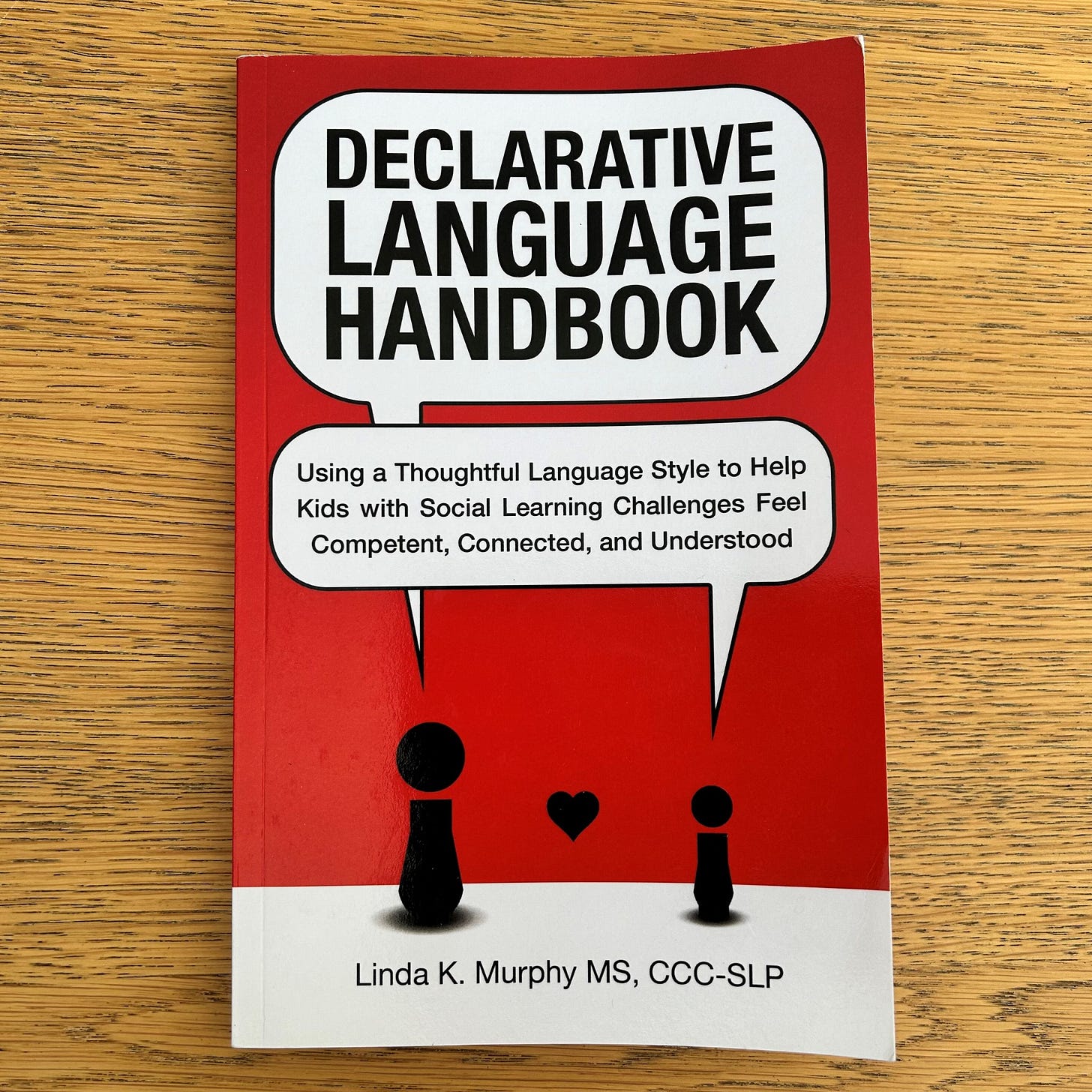Hello again! Is PDA real?
The following comment was recently left on one of my blog posts:
"I know things may change in the future, as research on all neurodiversities is still in infancy but as it stands my understanding is that there is no official diagnosis of PDA. That isn't saying my son and your daughter don't present in a specific way, but doesn't every autistic person present differently? I don't like some of the emotional comments that try to say that correctly stating there is no PDA as an official diagnosis means someone is saying that your situation and others doesn't exist because that isn't what all people are saying at all. How does it differ from ODD? ODD is recognised as a diagnosable disorder and is often comorbid with ASD. Until science proves otherwise it feels a little like astrology. It is popular because a lot of people feel warm and fuzzy about what they hear. In my role as a teacher in an alternative setting I do hear the term PDA thrown around a lot and in many cases it encompasses learned behaviours, general disobedience, ODD and of course Autistic kids who react in a certain way. With no official framework and boundaries it is too often a 'cure all' for a bunch of very different things. Sorry if I sound like a real downer but I'm just saying what I see from my experience."
This is not the first time I’ve had a comment like this so of course I know there are plenty of other people who share this kind of view. Some people are confused about PDA, some are dismissive of the idea of PDA, and some of us who live with PDA know it to be very real regardless of which professionals will or won’t diagnose it. In the past few years there has been a lot of debate around the term PDA, and I welcome that. I’m happier that more people know about PDA now than 14 years ago when I started my blog. The more conversation, hopefully the more understanding, although of course it also brings a larger number of ‘disbelievers’.
A longer blog post response to this recent comment is ‘brewing’ but in the meantime head over to my Facebook page to see what others had to say on this matter. I shared it there not to create a pile-on or to villify the person who wrote it (they did so anonymously anyway), but to see what others thought. A few years ago I tried to express some thoughts of my own in this post: Is Pathological Demand Avoidance real?
One of the comments on Facebook was concerning - a parent was told during some PDA training that PDA children lie. Our daughter is totally honest (some might even say blunt…) all the time! I’m not sure who was running that training but lying is not one of the features of PDA as listed by the PDA Society:
a. Resists and avoids the ordinary demands of life
b. Uses social strategies as part of the avoidance
c. Appears sociable on the surface, but lacking depth in understanding
d. Experiences excessive mood swings and impulsivity
e. ‘Obsessive’ behaviour, often focused on other people
f. Appears comfortable in role play and pretend, sometimes to an extreme extent (this feature is not always present)
One of my most read posts is about the difference between PDA and ODD. And I can say with certainty that our daughter would not meet the criteria for a diagnosis of ODD (Oppositional Defiant Disorder). This article on the National Library of medicine website lists those criteria: www.ncbi.nlm.nih.gov/books/NBK557443/
I find the bigger topic of people/children being diagnosed fascinating - when we think about it, who is it who gets to decide whether PDA should be a diagnosis at all? Who was it who got to decide that autism (or autism spectrum disorder, as it was) was a diagnosis? Were they neurotypical? Or autistic - if the latter, were they autistic in the same way that my daughter is autistic? Who was it that decided people in society should act a certain way and why did they get to be the 'leader'?
PDA feels very real in our house. How about in yours? Hit reply and let me know!
Book Reviews
The Declarative Language Handbook is a best-selling book that I've been meaning to read for a while. Written by Linda Murphy, a speech and language pathologist, this book was intended to help therapists, teachers, parents, grandparents and carers learn how to use everyday moments to teach and guide a child's social development.
Although the book was not written (as far as I know) with Pathological Demand Avoidance in mind, it is mentioned frequently within PDA circles. We have known for many years that language choice with our PDAer is key. By that I mean that we always carefully consider and choose the language we use with her, in any and all situations. We learnt very early on (probably even before her autism diagnosis) that we needed to phrase demands in a way to make them seem less like demands and more like requests, and we also learnt that certain language choices could negatively influence her anxiety levels. I highly recommend this book - you can read a fuller review by clicking on the photo above.
'So, I'm Autistic' is an introduction to Autism for young adults and late teens. Written by Sarah O'Brien, a young autistic adult who was diagnosed at the age of 16, this book aims to provide support for those with an autism diagnosis approaching adulthood. Lots of information is also included for other people who would like to understand more about autism, and it shares insights about how autistic young adults may feel at this stage of life.
I currently have a huge pile of books waiting to be read - mostly about autism and ADHD. I’ve reviewed so many good ones already and from a quick flick through my ‘waiting’ pile, I can tell you that there have been some more awesome ones published recently! It’s hard to keep up. In my next newsletter I’m hoping to be able to share news of a must-have book that’s coming out just in time for the summer holidays… watch this space!
In a world where social media is king, and very different to how it was when I first started blogging 14 years ago, I’ll admit to feeling overwhelmed of late. The constant niggling pressure to be better, create more videos and appealing images has somehow stifled my ability to do what I originally did - writing. My blog and newsletters have been sadly neglected while I try to figure out a way forward… thank you, if you are still with me, reading! I always hope there’s something helpful or of interest when I pour some ramblings into my Substack.
PDA Training
The PDA Society runs the best, most comprehensive training about PDA, not only for parents and carers, but also for health, social care and education professionals. There’s also courses run by dads, for dads! It’s mostly online so accessible from all over the world. To find out when their next training course is running, check out their website links here: PDA Society Events & Training
Question Time
This week’s quick question is…. PDA. Is it real or not, in your opinion?!
Thanks for reading! If you have any questions or would just like to say hello, please get in touch via stephstwogirls@gmail.com, leave a comment on this post or reply to this email.











I could never understand why I resisted doing things, why I always had to talk myself into everything…the older I got the less able I was to talk myself around, I became even more aware of how demands made me feel, mentally and physically. When I began noticing signs of pda in my son who was awaiting autism assessment, I had my own lightbulb moment. I think pda is definitely a difficult concept to wrap your head around, unless you have experienced it yourself…
I liken the DSM to a snapshot that captures a specific moment in time.
ODD does not describe a person uniquely, it describes a person in an environment. And how do you measure vindictiveness?
Neuroscience and the historically narrow and male-centered ways that research and medicine describe humanhood continue to evolve beyond the current DSM snapshot. Normalizing the concept of neurotypes will mean redefining categorizing by disorder. The future cant come soon enough!